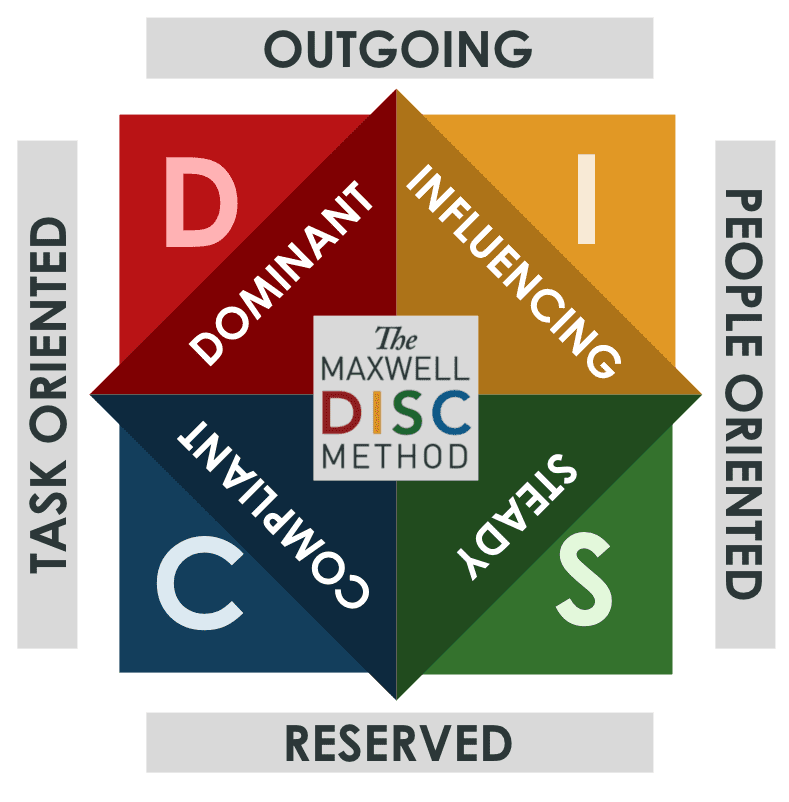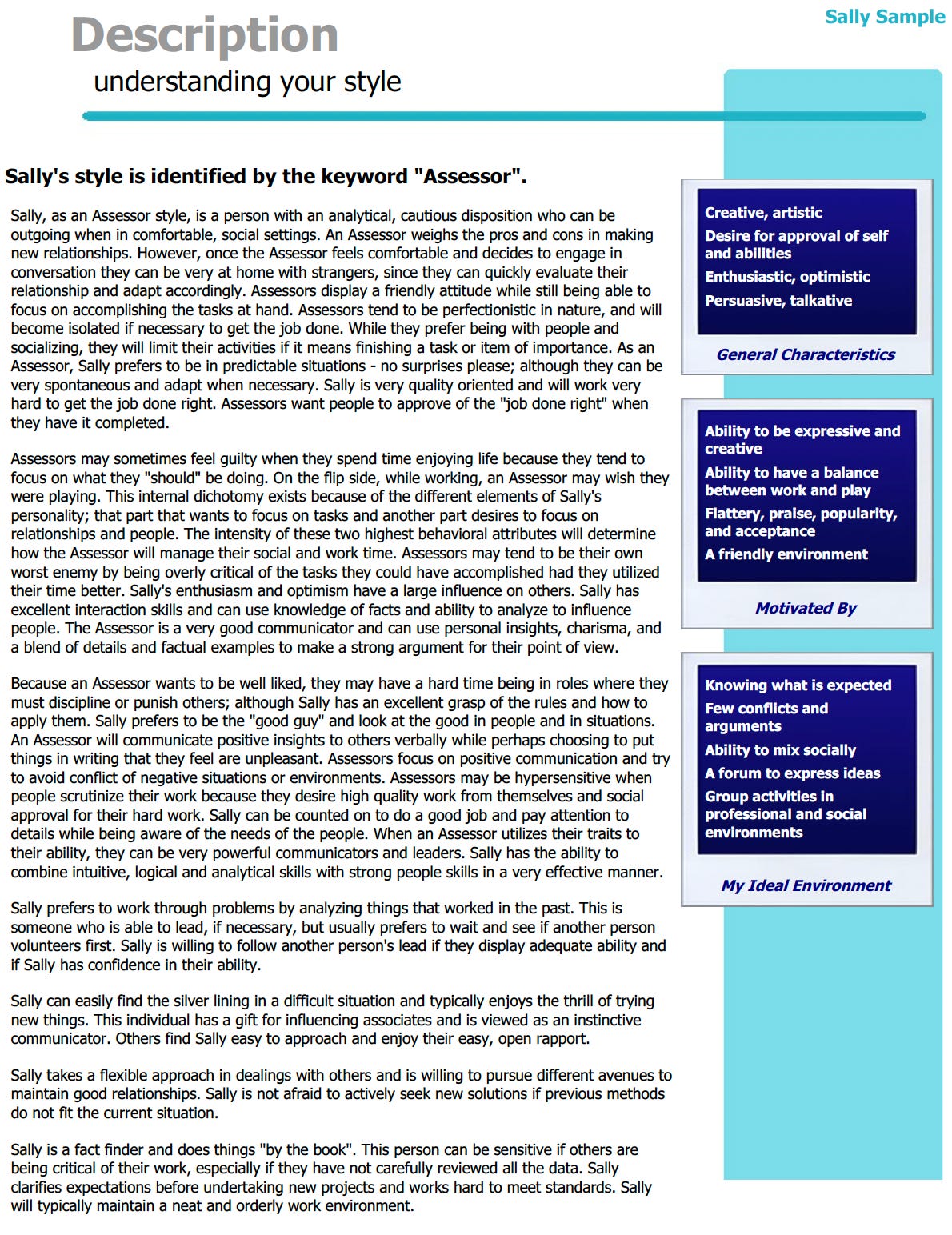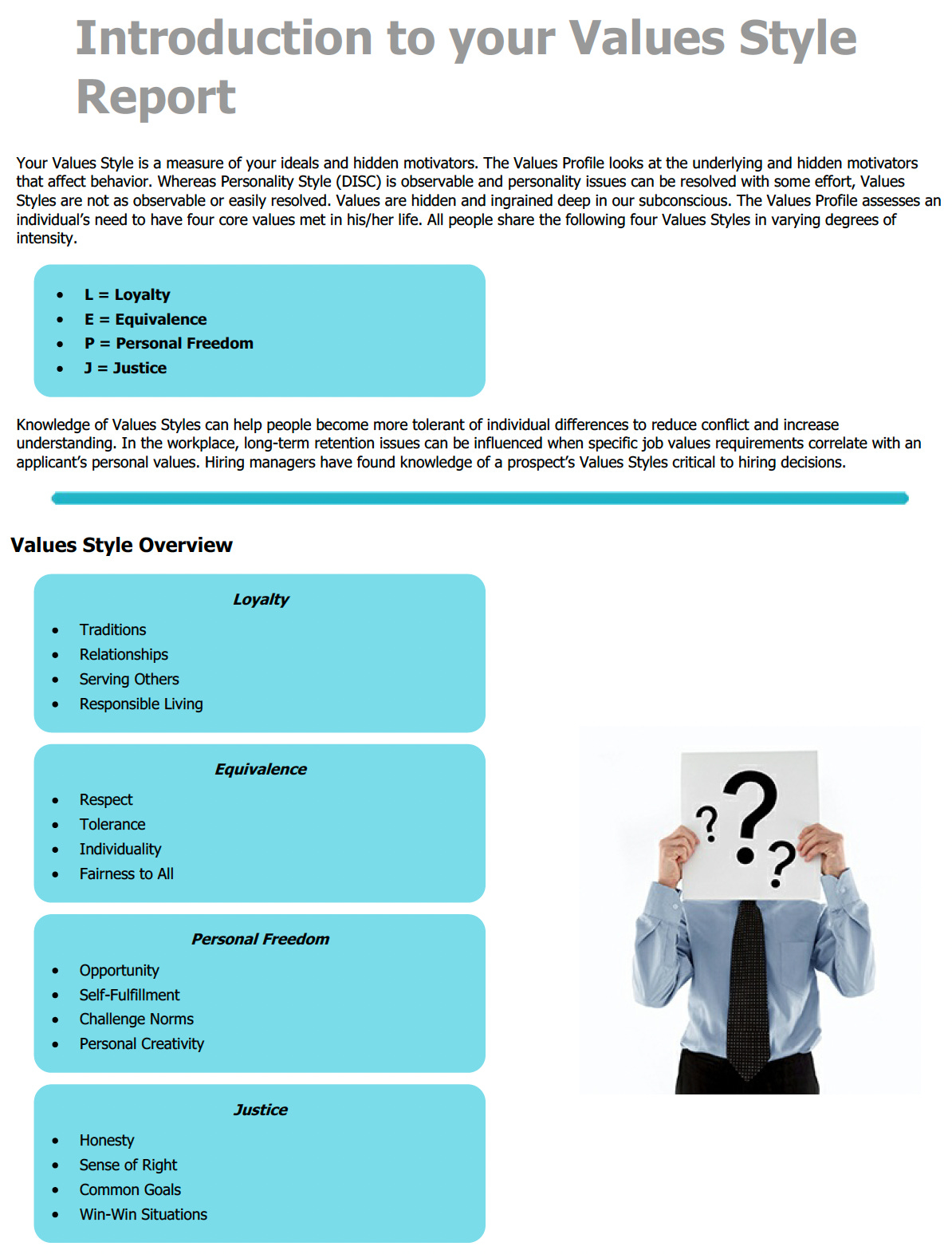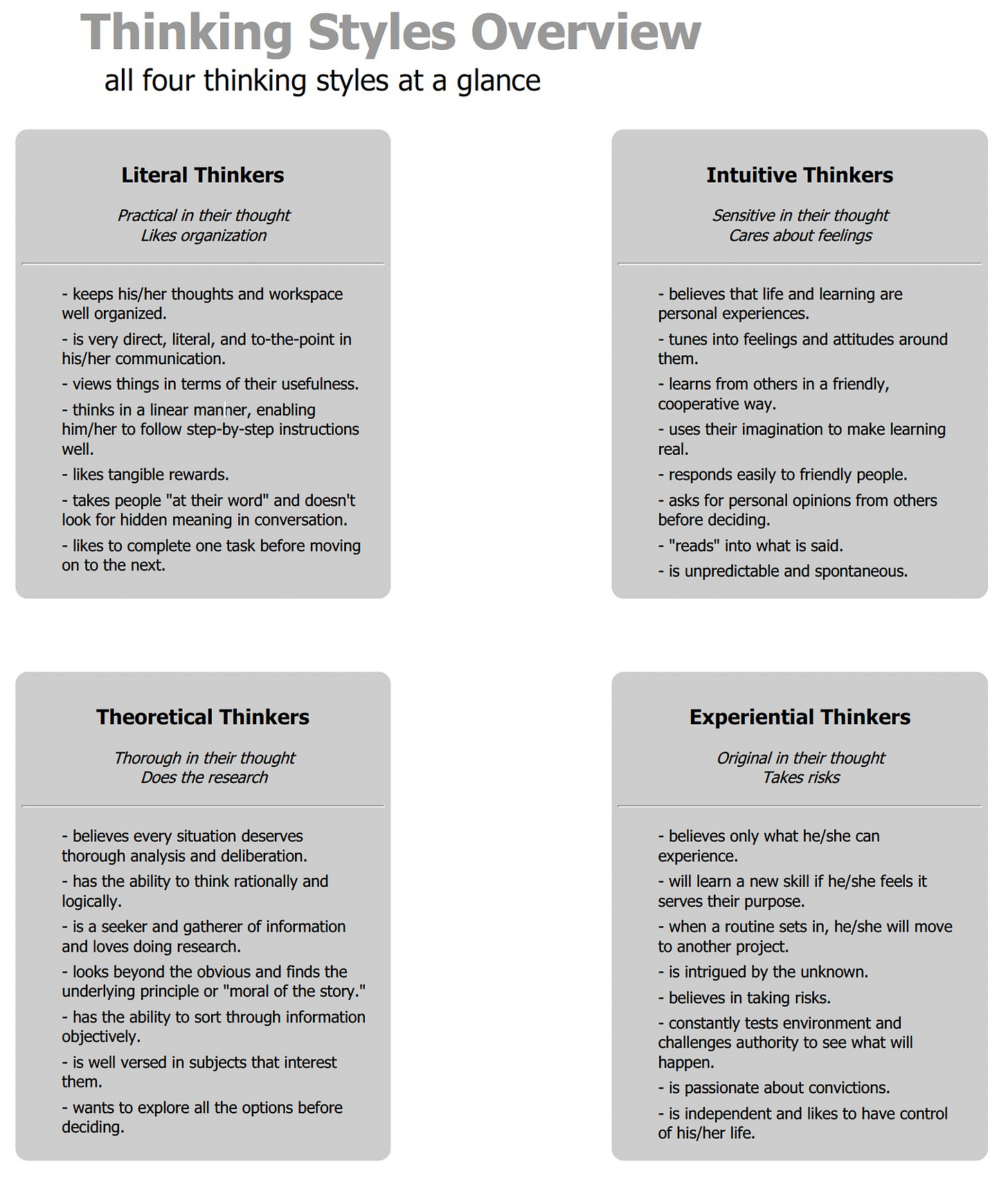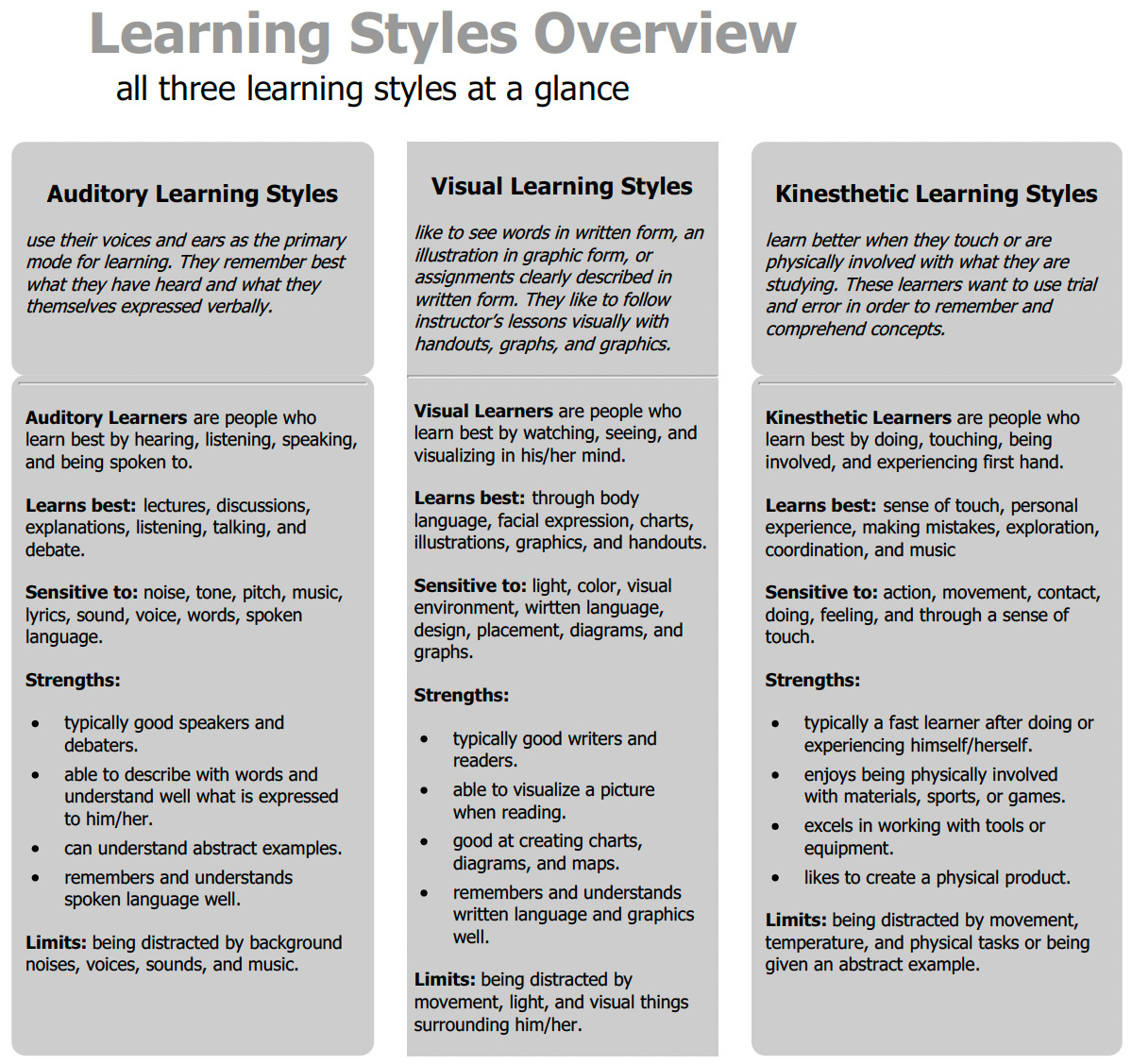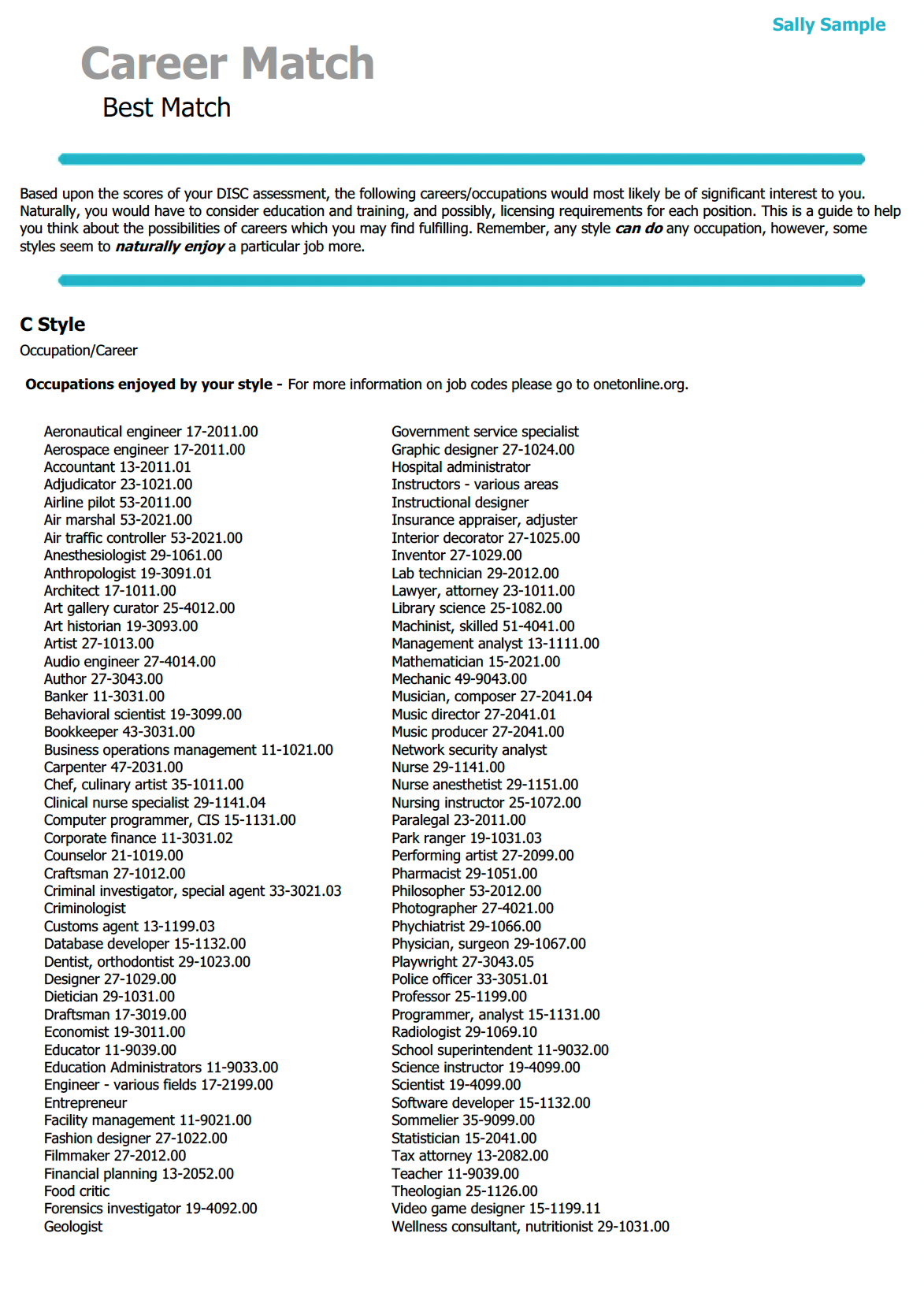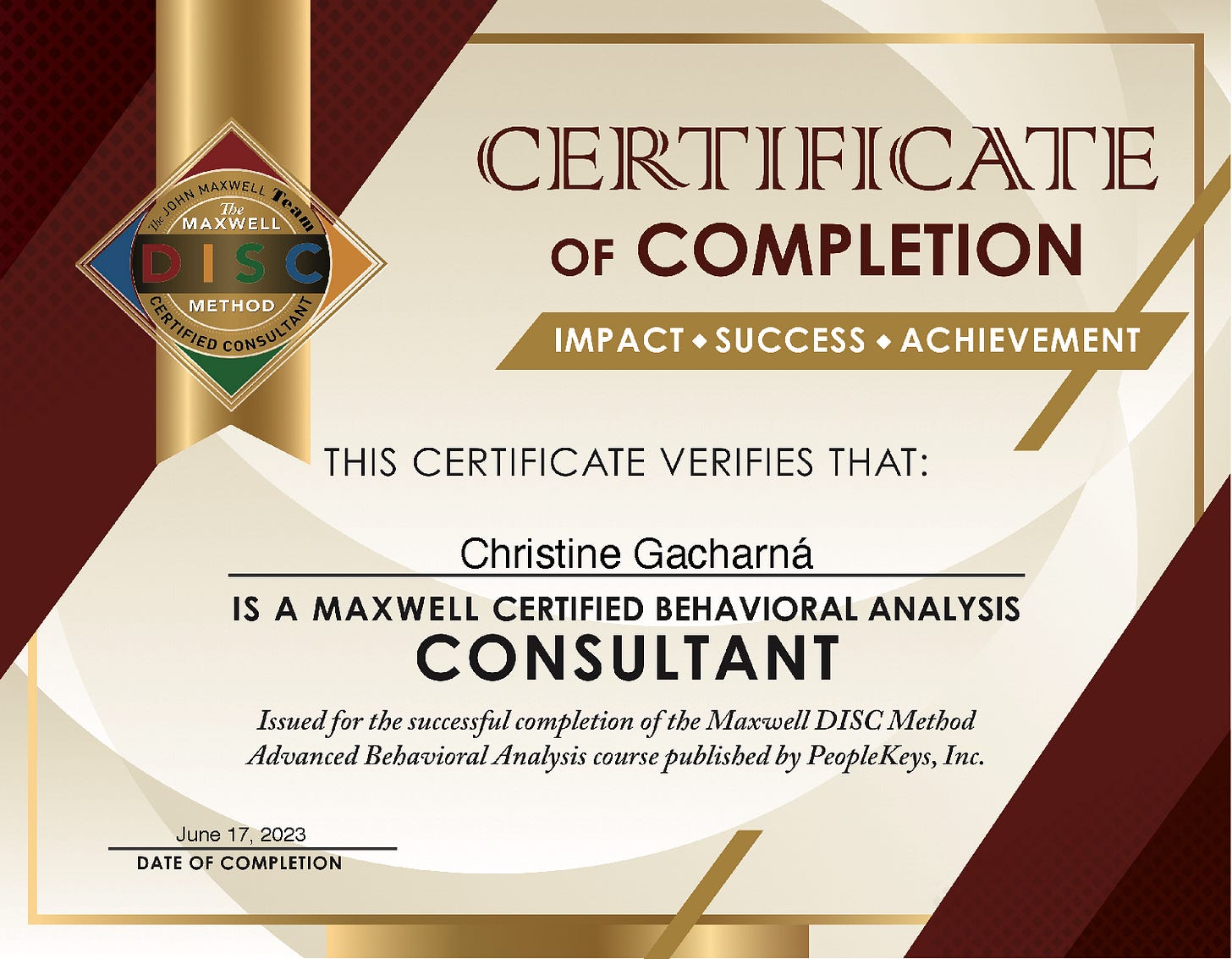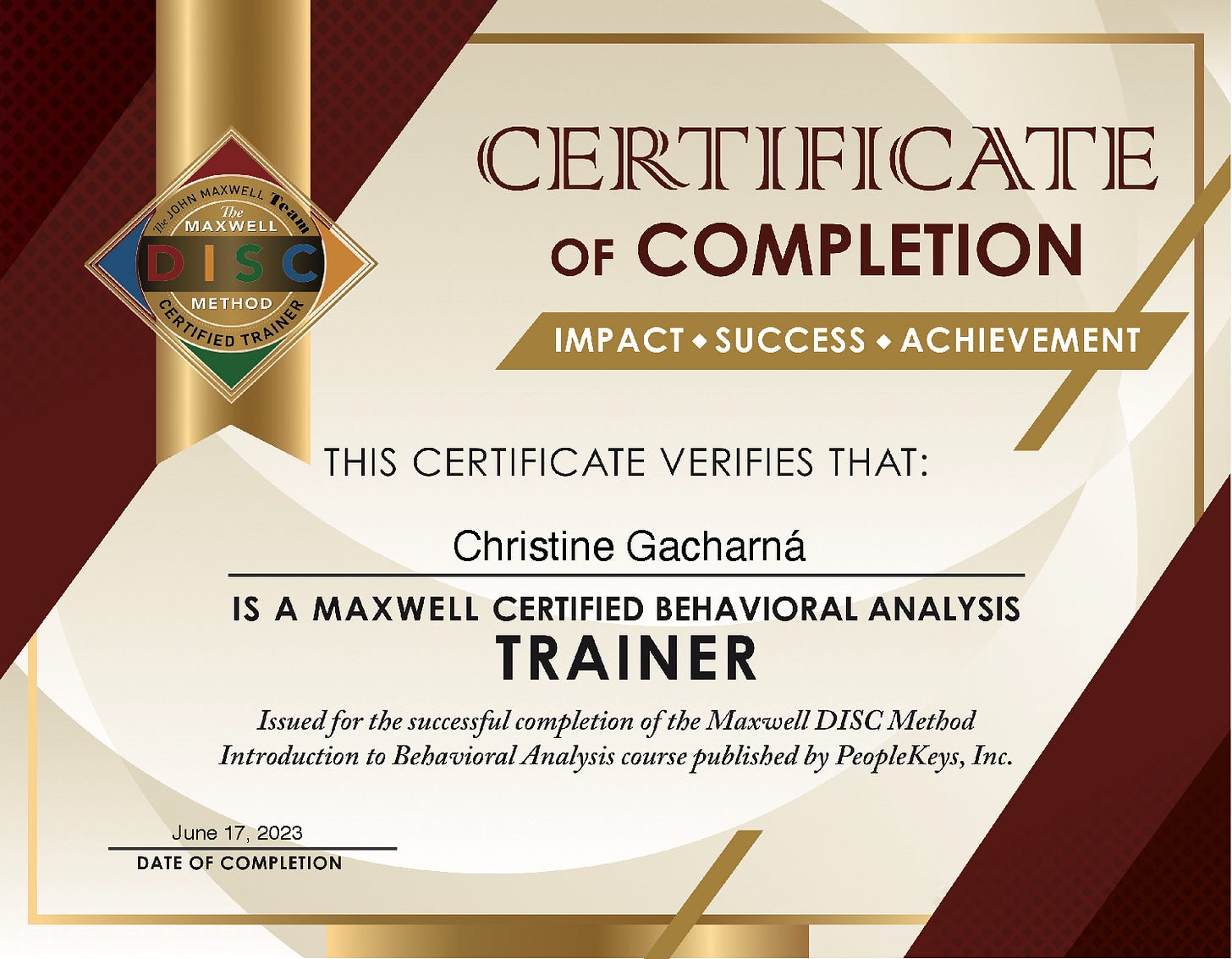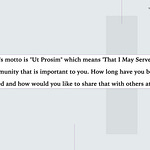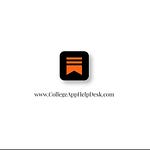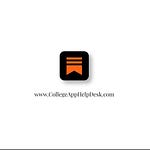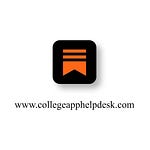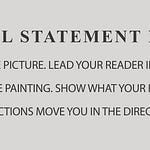[00:20:32] Q: “One of the things that pops into my mind is, ‘Why isn’t Christine just going around the United States doing this?’ My God, the value-add for folks to realize — both the kids and their parents — this is more $#!* than they're getting out of their public, private, or charter schools.” — Tom O’Hare
A: Yep. It’s the Maxwell DISC Student/Career Assessment, and I’m a certified Behavioral Analysis Trainer and Consultant. It’s a strength finder. What are your interests? What are your strengths? What are your talents? And what are the career options that those strengths, talents, and interests best serve? This is where I start to help students identify the answers buried within them. —Christine Gacharná
The Maxwell DISC Student/Career Personality Indicator Report is one of many tools we use to help students.
There are six different sections of this assessment, but the last two sections I don't use with my high school students so much. Sections five and six are more appropriate for students once they are in college or maybe even after college, later in life. I find an action plan, and the next step is just too much of a leap for students whose long game can’t easily stretch past the next 12 months of transition, getting through AP classes, college applications, senior prom, graduation, etc.
Whether a student’s future plans after high school include enlisted, enrolled, or employed, the first four sections of this assessment are helpful because no matter the plan, learning and/or training will likely be involved. Those sections cover:
communication style
value style
learning & thinking style
the careers they best serve
A construction foreman would not be the best career choice for a student who doesn't want to manage people. Could a student do that job if it’s not on the list? Yes. She would have to strengthen some skills to be good at that work, but absolutely, she could do that.
The communication section is important for college applicants because of the essays required. If a student is not communicating what s/he is trying to say, then the message won’t be received. As if that weren’t bad enough, we don't know who the reader will be; not knowing the reader means not knowing what a reader’s filters may be. Students can’t risk alienating or offending readers in their college application essays.
Of course, it’s also incredibly helpful in their essay writing work (in high school and college) but also in communicating with others — friends, teachers, parents, coaches, peers, adults, admissions officers, the list is endless.
My job is to teach students not only how to communicate but also how to communicate with others who may operate differently.
The values section is invaluable to students; instead of students having to draw from the depths of their souls to spit out values that can be woven into a personal statement, they can steal it straight from this personal assessment.
As students review the assessment, they are able to discern, “Yes, wow, that's exactly me. They got me right.” For students who need to write an essay, this gets them talking about something they already agree with, making the writing easier. For students looking for their next step, knowing and understanding their values can narrow choices in ways that help them hone in on their interests and calling.
Learning styles and thinking styles can be put to use right away. High school students can use this knowledge to their advantage during their senior year, but this information can also be used in college, graduate school, the workforce, or during military training and service.
The last section takes the student’s interests and talents into consideration and compiles a list of careers that would best serve this personality type. This is helpful for students who aren’t quite sure what they want to do; it gives them a starting point for careers they can possibly shadow to learn more about.
Whether a high school student chooses to be enlisted, enrolled, or employed after their senior year, the Maxwell DISC Student/Career assessment can help.
Download a sample Student/Career assessment report (ages 16+):
Download a sample Student Success assessment report (ages 10-15):
Download a Quick-Tip Guide for parents:




